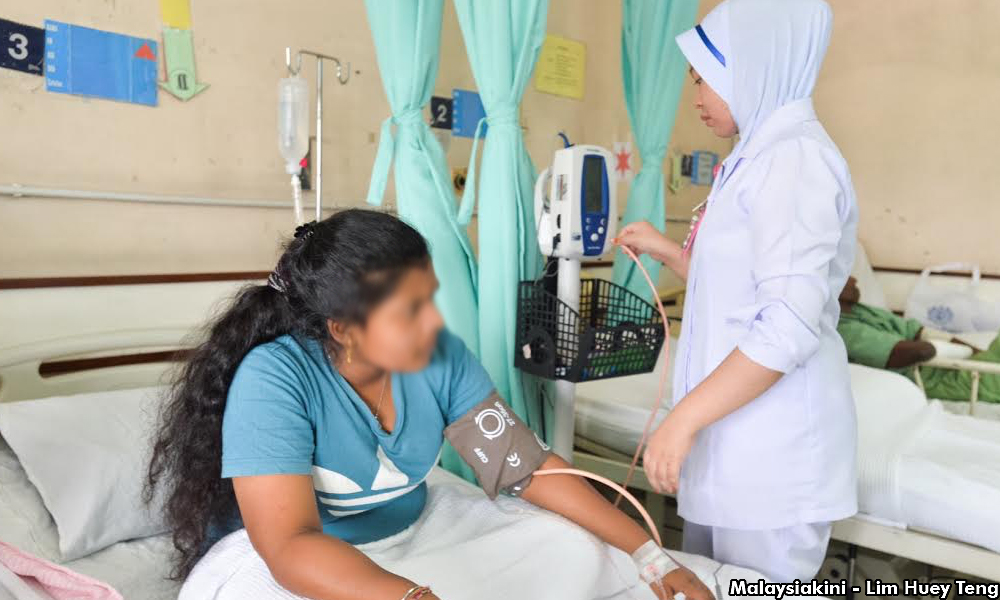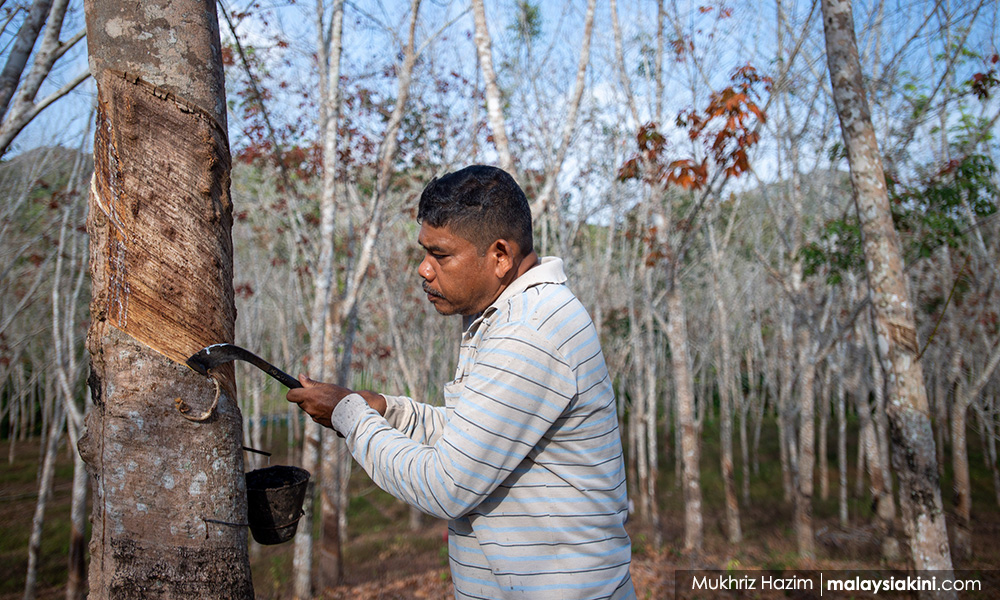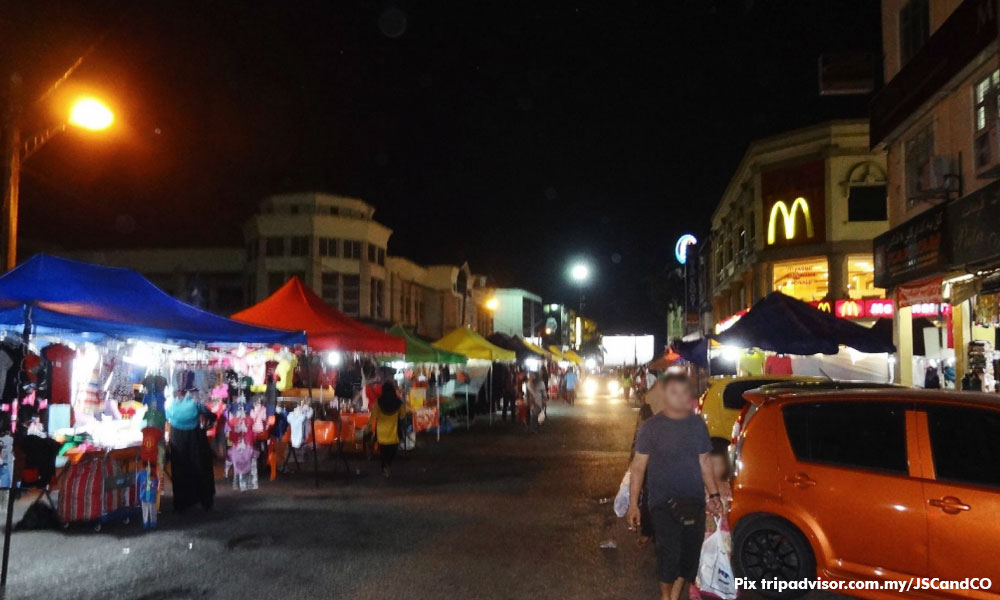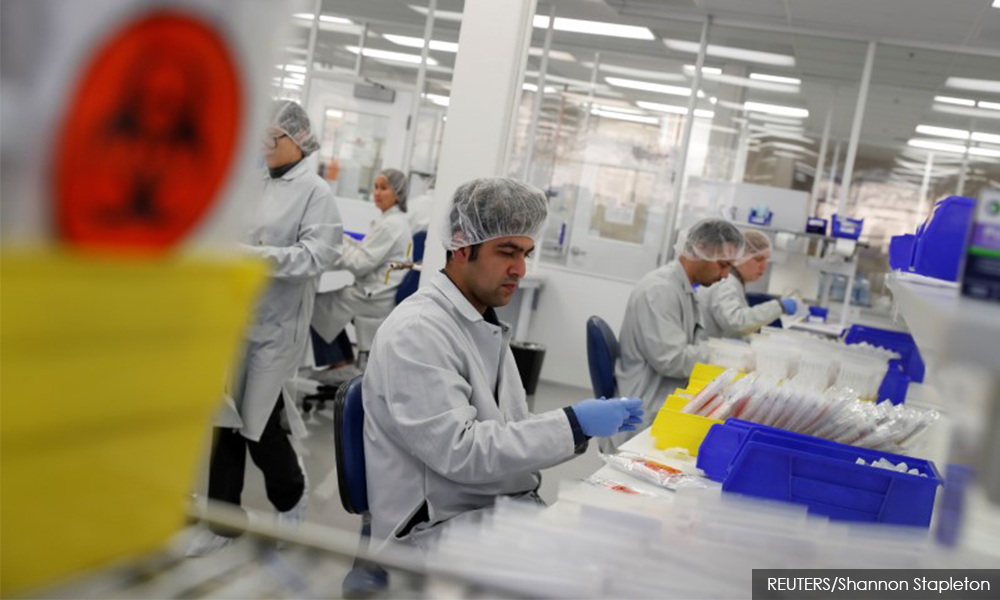COMMENT | The world is being buffeted by a serious three-faceted crisis. The first aspect and the precipitating cause of this crisis is the Covid-19 pandemic that sweeping the world.
The pandemic is causing a massive overload on the medical services even in the richest countries in the world. The death rates in Italy, currently one of the most badly affected nations, has already exceeded 10percent of total diagnosed cases in that country – far above the 1percent seen in countries such as South Korea which acted early to contain the epidemic.
Malaysia is handling this health crisis much better than many other countries and hopefully we will be able to arrest the upward trajectory in the number of new cases within the next week and avoid the stressing our medical services to breaking point.
The second aspect of the crisis is that many Malaysians in the B40 and M40 groups, especially daily rated workers and small business people have already run out of their meagre savings after 10 days of the Movement Control Order (MCO) and are already having difficulty in providing food for their families.
The third aspect of the problem is that our small and medium-sized enterprises (SMEs) which employ about 65percent of our workforce are seriously under threat. The lockdown means that the vast majority of these SMEs have had no income since March 18.
However their fixed costs remain – wages, rental, loan payments, income tax commitments, payments due to suppliers, etc. There is a real danger that some SMEs will simply fold up even though they were viable in normal times.
That would mean that jobs would be in short supply after the lockdown is lifted as a significant proportion of the SMEs would not be able to resume their activity. The post-lockdown downturn of the economy would therefore be deeper and more prolonged.

Given this bleak scenario, several measures have to be implemented quickly to address each aspect of the crisis. The capacity of our health care system to respond to the Covid 19 epidemic has to be bolstered, measures to ensure that the poorer 50% of our population have access to food and other basic necessities have to be rolled out and another set of measures to ensure that as many as possible of our SMEs are kept viable so that they can provide employment to the rakyat when we are able to restart the economy.
The Caring Economic Stimulus Package
Taken against this backdrop, the Caring Economic Stimulus Package (Pakej Rangsangan Prihatin) is on the right track. It has allocated another RM 1.5 billion to the Ministry of Health (MOH) to better tackle the Covid-19 epidemic. This amount represents 5 percent of the size of the annual health budget and will help the MOH in its fight against the coronavirus.
PSM hopes that a portion of this fund will be used to rapidly expand testing capacity as there are too many symptomatic cases who are now being sent back as they do not meet the “criteria for testing” because they do not have any documented exposure to a known cluster of Covid-19 cases or a history of travel to certain (specified) countries.
The failure to diagnose cases early is costly as it leads to more secondary cases rising from these individuals who are asked to go home and self-isolate instead of being speedily diagnosed and put under strict quarantine.
The Pakej Rangsangan Prihatin also signals a fairly big cash transfer programme. Some 4 million families will receive a cash transfer of RM 1,600 over the next 2 months while another 1.1 million families will receive RM1,000 in the same time period. This covers 5.1 million families – approximately 70 percent of Malaysian families – and will provide much-needed relief for their cash flow problems.
Although for those that have lost their income completely due to MCO, it would only be about 60 percent of their minimum wage, but we believe it is to ensure that these households have food on their table. The PSM is very appreciative of this measure as it will ensure that 70 percent of the poorer families (the B 70) will be able to avail themselves of basic necessities for the next two months.

Hopefully after that, most of them will be back to work and be able to fend for themselves. The BRIM and BSH databases will be very useful in the implementation of this cash transfer initiative, but the authorities should take cognizance of the fact that certain poor groups such as single mothers below the age of 40 were excluded from the BSH program. The first tranche of the payout should be rolled out without delay - in the first week of April itself, as many families are already without food in their homes now!
Measures to help SMEs
This Pakej Rangsangan Prihatin has, in addition a slew of measures to help SMEs survive the lockdown. These measures are most timely as we need to keep these businesses alive as they play an important role in our economy in addition to providing employment for 65 percent of our working population. These measures include;
- The moratorium on bank loans for the next 6 months. This will have a huge beneficial impact for cash-strapped businesses and allow them some breathing space to survive the crisis.
- The wage subsidy program where the government picks up RM 600 for a worker if the SME agrees not to terminate him/her. This would have greatest impact on lower-paid workers as RM 600 is 50% of the minimum wage, but would not be as helpful for employees with higher pay.
- The exemption of rent for business premises in government and GLC premises
- Discounts of electricity bills – especially for the smaller enterprises
- RM 4.5 billion allocated for schemes to improve access to finance for the SMEs.
We shouldn’t be too picky in the time of an economic emergency, but there is a significant moral hazard here. Well-placed individuals may be able to get loans with a 80 percent guarantee from the government but not really invest enough time and effort in the business that they took the loan for.
A system of monitoring must be put in place to limit the occurrence of this sort of ploys. Business failures despite trying, should not be penalized – it happens, but efforts to defraud the system by not actually trying to make the business work should be red-flagged and the individuals involved blacklisted.
- The possibility of postponing EPF contributions (still to be discussed with the EPF)
- Exemption from HRDF payments (This is for the larger SMEs)
- The postponement of paying taxes
The expansion of domestic demand in all corners of the country arising from the cash handouts to B70 families, single adults, varsity students, government servants and retirees, grab drivers, taxi drivers and others to the tune of about RM 15 billion will also help resuscitate small SMEs in the service sector.
Hopefully, the institution of measures to lessen their cash flow problems and the boosting of the domestic market will be sufficient to save the majority of SMEs from financial ruin.
The pasar malams
The Pakej Rangsangan Prihatin didn’t talk about this specifically, but the issue of allowing the micro businesses in night markets and other people’s bazaar to re-start operation in the post MCO period has to be addressed.
How could this be accomplished without compromising too much on social distancing measures that will still have to be in force even after the MCO is relaxed? Many small SMEs will not be able to get back to their feet if we do not allow them the space to operate. But the same time we cannot afford another upward spike that will necessitate another MCO!

Perhaps the measures that are being taken currently in wet markets to limit the number of people entering could be also implemented for the night markets and for Pasar Ramadans?
The provision of infra-red visors to Local Authority staff would help identifying those with fever. These people should be required to go home, self-isolate and report to designated centres for proper screening. Obviously this has to be thought through and guidelines prepared with serious consideration given to the input from health care professionals from the MOH. This issue should not be decided on populist sentiments for the cost to us as a society could be severe if we get this wrong.
Widening the Budget Deficit?
So, on the whole, the measures outlined in the Pakej Rangsangan Prihatin are the right ones at this stage of the very unusual situation we are now in. The actual outlay on the part of the government is in the region of RM 25 billion. The Prime Minister said in his speech that this will be taken from operating expenditure and that the government will not be borrowing to meet these expenses. We will have to see how the government plans to do this.
But in the 2020 Budget approved by the PH government in December 2019, there was only about a RM 5 billion excess of estimated Federal income over operating expenditure. With the steep decline in oil prices and the drop in corporate earnings and taxes, Federal Government income is going to take a hit. So it is difficult to see where the extra RM 25 billion is going to come from – will some of the allocations to other Ministries be reduced?
If re-allocation of funds among the Ministries does not free up sufficient funds, perhaps the strategy of selling government securities to the Central Bank should be considered? Isn’t this what US President Franklin D Roosevelt did in the 1930s during the Great Depression?
Central Banks have been buying bonds and securities from the private sector to “inject liquidity” into the financial system since the 2008 Financial Crisis. They term it Quantitative Easing (QE). Why not some QE for the Federal Government - our Central Bank buys some fresh Government Securities? Then the government will have the funds to institute the above measures.
These are extraordinary times and if the aim is to keep the economy afloat so that people can get the necessities they need, it doesn’t matter if agencies like Moody and Young are somewhat miffed with this strategy for raising the money! People’s well-being should come ahead of rating agencies (RA) prescriptions for Budgetary Prudence – as RA’s over-riding interest is protecting the position of the richest investors in the system.
Some unaddressed issues
The Pakej Rangsangan Prihatin, as comprehensive as it is, does not address certain important issues though. There are sectors that cannot be resuscitated with debt restructuring and provision of easier credit, for example the airlines industry or hotels restaurants and shopping centres that cater for international tourists.
International air travel will have to be restricted for the next 18 months, until the pandemic is well and truly controlled. So the employees in these industries have to be absorbed into other sectors of our economy. We just need a small number of workers to safeguard and maintain the assets of the sectors dealing with international tourism as there will be a time in the future when these sectors can again open for business.

The investors in these sectors might need assistance in paying retrenchment benefits for the staff they have to let go of. Would long term loans with repayments starting in about 2 years time be required for them?
Unemployment will be a major problem in Malaysia and for many other countries. Much of our manufacturing is for global chains. Many of these chains will cut down on orders as their markets are affected by the lockdown in their countries. So we will witness the retrenchment of these workers.
We will need to generate employment opportunities for several hundred thousand Malaysians. And we cannot rely on the export market or on the private sector to step in and generate jobs. The global system does not enable such a strategy. The government has to step in to generate jobs by taking up public sector projects, but that will require a big paradigm shift.
We need to expand food production for domestic consumption. We need better management of municipal waste – recycling, producing bio-methane and the construction of sanitary landfills all over the country. We need tens of thousands of low-cost terrace houses to rent to the B20 population. We need to clean up, repair and spruce up our low-cost flats.
We need to set up some factories to produce electric-powered buses for our urban centres. We need to set up solar farms in every district in the country. We need re-forestation of the logged forests and rehabilitation of our rivers. Yes, there are a lot of useful things we can put our unemployed citizens to work on, and the government needs provide training to workers so that they can take up jobs in developing renewable energy projects, reforestation, urban renewal and the like.
But we cannot depend on the profit motive to inspire companies to initiate all this. This is a time of market failure! Just as we cannot expect the private hospitals to do a good job of handling Covid-19, we also cannot expect the private sector to step in and handle the economic fall-out from the pandemic.
The PSM thinks that the Government should step in to fill the void. The Federal government will need to work with local authorities to set up local or regional based agencies to do various sorts of public work.
The PSM position is that we should avoid huge bureaucracies for these sorts of work. Smaller agencies with local participation and transparency in their running should be the way to go. Involvement of the local population and state and district governments should be the norm. Big opaque bureaucracies breed corruption and inefficiency!
Funds for the fiscal stimulus
These are huge issues which the Pakej Rangsangan Prihatin does not venture to address. Funding is obviously a big issue- where is all the money for these public works going to come from?
Well, we mentioned QE for the Public Sector. That should be discussed and the downsides have to be explored and planned for. One of them is a balance of payment problem and pressure on the ringgit. Producing consumer goods within Malaysia so that all the extra wages paid out for all these public works does not cause runaway inflation is imperative.
These are important issues but they are not insurmountable. There are ways to handle these. The PSM hopes that the government will engage in a discussion on some of these issues in the near future, as unemployment will be a major issue that we need to handle.
We are in uncharted territory right now. There is a huge risk of a deep and prolonged recession. Reducing interest rates and QE will no longer work as there has been a collapse in aggregate demand. We need other strategies.
The Federal Government’s handling of the Covid-19 epidemic in the country and the initiatives taken in this supplementary budget to handle the economic ramifications of the pandemic are reassuringly measured. We need to work together to chart a course in this stormy period. This is not the time for Malaysians to be partisan.
And the Federal Government should be prepared to listen to ideas from the public and engage with Civil society groups who wish to give input as to how the current crisis should be managed.
DR JEYAKUMAR DEVARAJ is PSM chairperson and former two-term MP for Sungai Siput.
The views expressed here are those of the author/contributor and do not necessarily represent the views of Malaysiakini.
Keep up with the latest information on the outbreak in the country with Malaysiakini's free Covid-19 tracker.
Malaysiakini is providing free access to the most important updates on the coronavirus pandemic. You can find them here.
Help keep independent media alive - subscribe to Malaysiakini.

